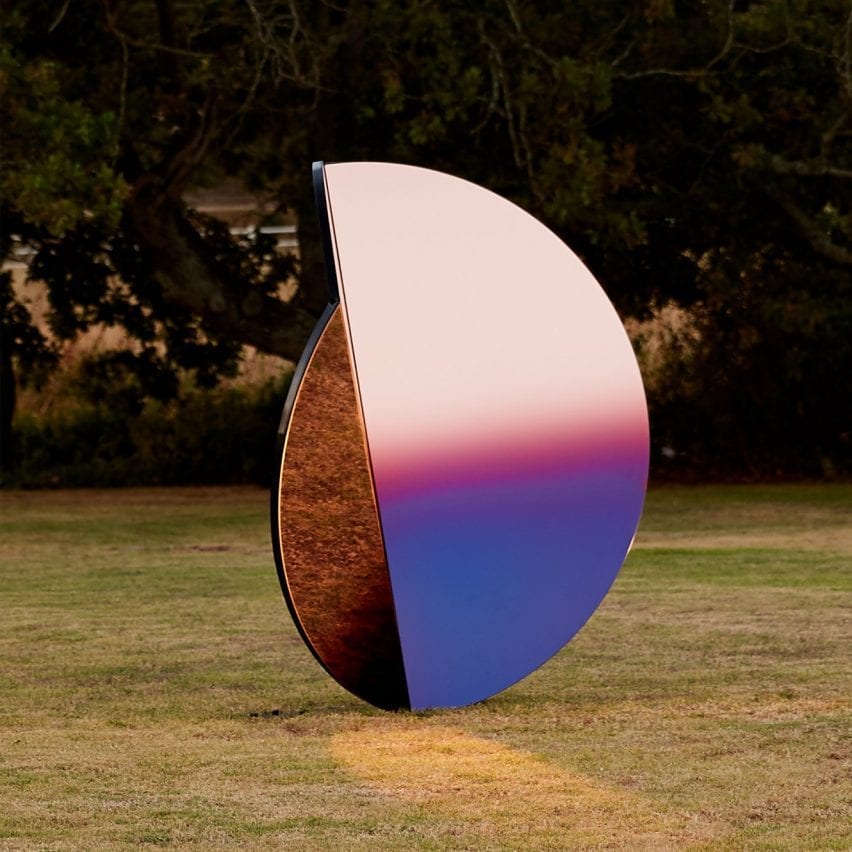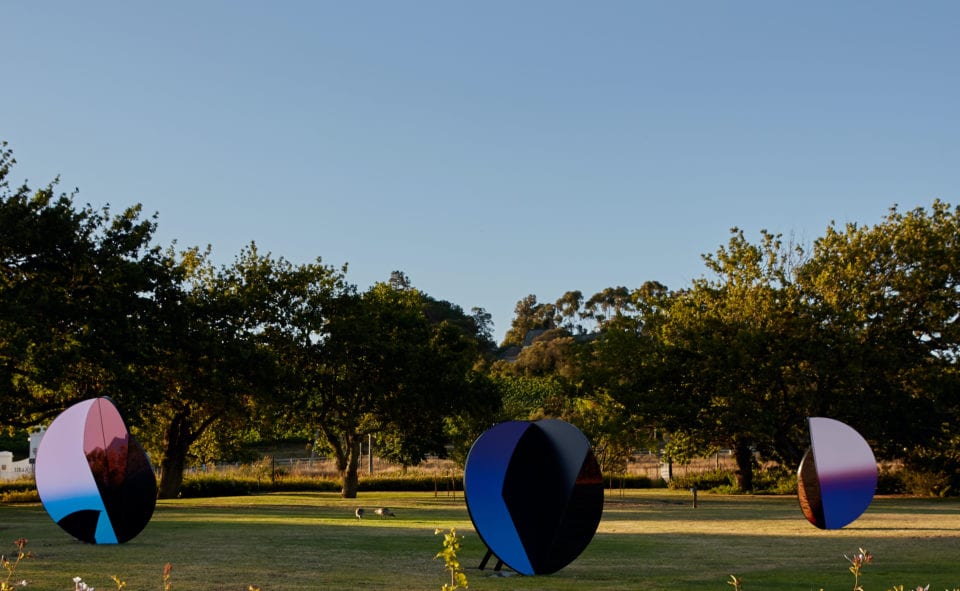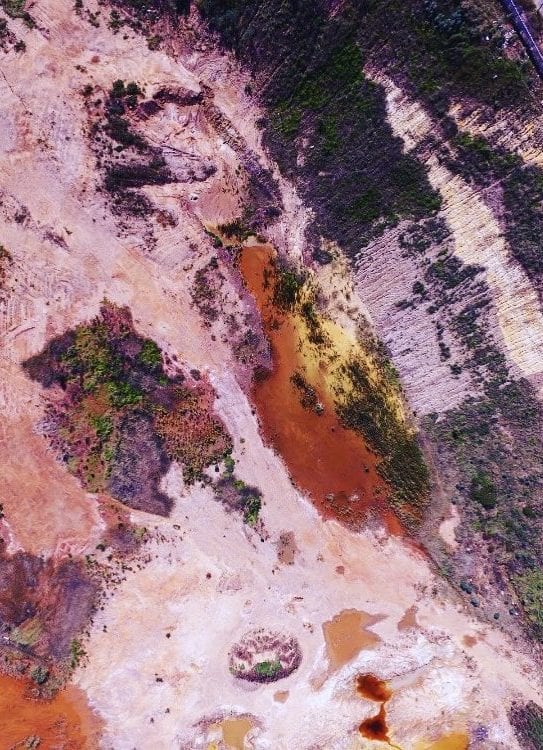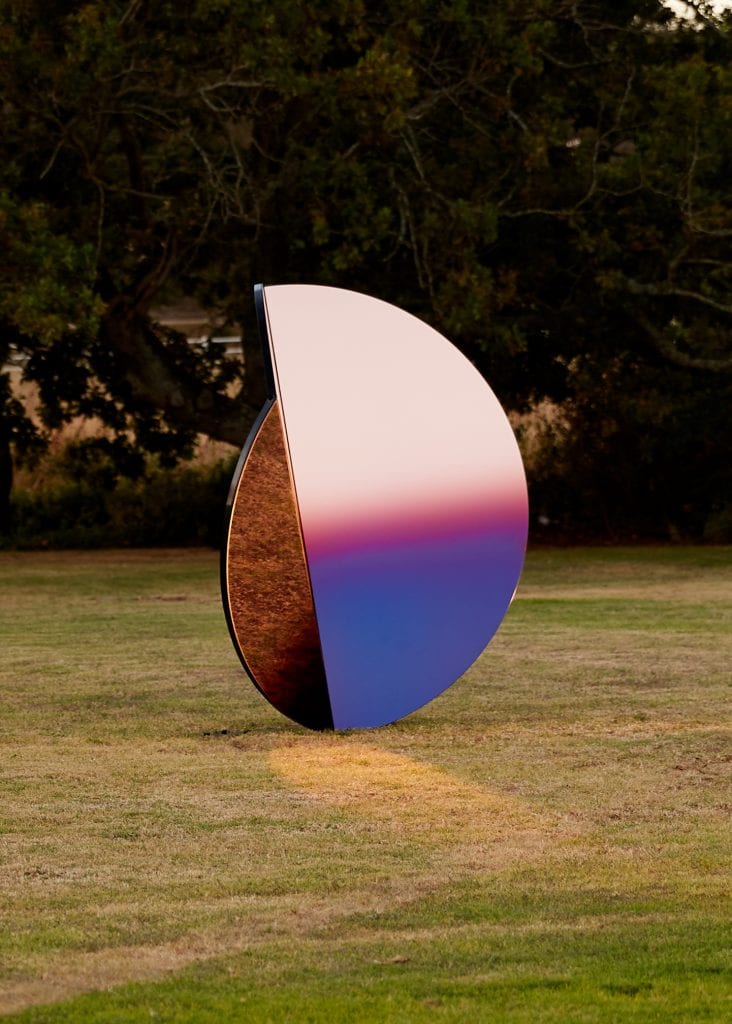
In the second part of our exclusive video series with Sumayya Vally, the architect discusses how her studio Counterspace's project Folded Skies addresses the complex geographies of Johannesburg.
Counterspace's Folded Skies installation comprises a series of large iridescent mirrors. Each mirror features a different colour gradient, which was created using pigments found in dust produced by the mines that surround Johannesburg, South Africa.
"The Folded Skies project draws on some of my earlier research around Johannesburg's mine dumps" explained Vally in the video, which Dezeen filmed in London.

Beautiful sunsets can often be seen over the city of Johannesburg. However, this unusual iridescent light is thought to be a result of the toxic dust that is released by the mines around the city.
"They're brilliant colours – copper, cobalt, nickel, potassium – [but they're] very toxic substances," said Vally.
"This is what gives us the most brilliant quality of light and brilliant qualities of sunset because the dust is iridescent."

The three mirrors are meant to recreate the light of Johannesburg at sunrise, sunset and midnight, but also act to question the social geography behind this phenomenon.
The pieces were installed at the Spier Wine Estate in Stellenbosch as part of the Spier Light Art Festival in late 2018 and early 2019, but they were originally designed to be installed at a mine.
"They're meant to be installed on a Johannesburg mine," Vally said. "The mirror would bring together the mine landscape, but also the inner city of Johannesburg and the surrounding townships that work to service and mine the land."
"And so on the one hand, the project is working with translating this phenomenon, this atmospheric condition that is so beautiful. On the other hand, it's also interested in bringing together a conversation about the complexities of land."
Vally is the architect behind this year's Serpentine Pavillion. She founded her architecture studio Counterspace at the age of 23 and is the youngest architect to receive the prestigious commission.
Dezeen is publishing a series of exclusive video interviews with the architect. In the previous installment, Vally said that she founded her studio out of a desire to create the kind of architecture she felt was missing from her formal education.
Below is a transcript of the interview:
"In 2018 we made the Folded Skies project, which draws on some of my earlier research around Johannesburg's mine dumps. The project consists of three mirror installations commissioned by Spier and installed at Spier Light Art Festival in Stellenbosch."
"The mirrors are coated with the same chemical compounds that we find in Johannesburg mine runoff. They're brilliant colours. Copper, cobalt, nickel, potassium, [they're] very toxic substances. There is a myth that this is what gives us the most brilliant quality of light and brilliant qualities of sunset because the dust is iridescent."

"The mirrors also fold together different contexts in the surrounding area and bring together areas that are very separate on plan, but very entangled in how they function and in how they work. They're meant to be installed on a Johannesburg mine."
"The mirror would bring together the mine landscape, but also the inner city of Johannesburg and the surrounding townships that work to service and mine the land. And so on the one hand, the project is working with translating this phenomenon, this atmospheric condition that is so beautiful. On the other hand, it's also interested in bringing together a conversation about the complexities of land."
The post Counterspace's Folded Skies installation aims to explore "the complexities of land" appeared first on Dezeen.
from Dezeen https://ift.tt/3qEMF2e
No comments:
Post a Comment